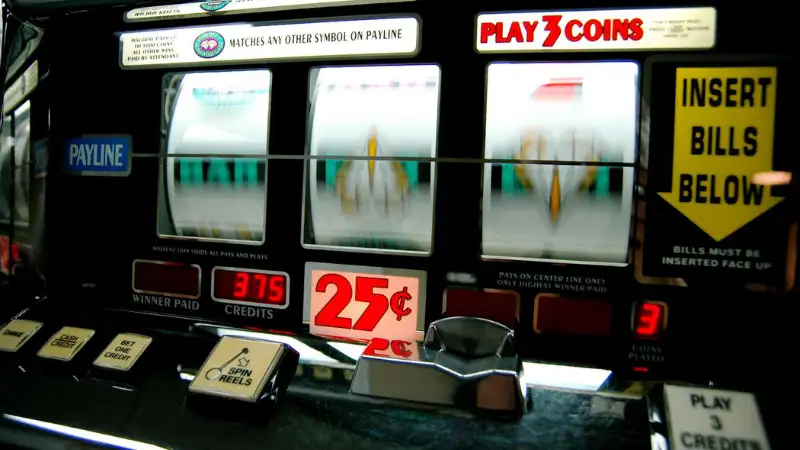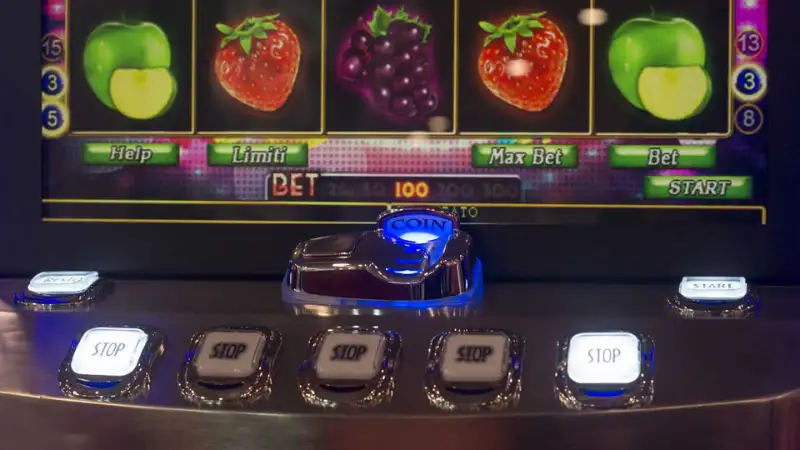
RNG in slots
Understanding the technology behind modern slot machines is essential for any player who cares about fairness and transparency. Central to this process is the concept of RNG in slots, which stands for random number generator. At Slot Pillar, we dive into how the implementation of RNG in slots protects players and maintains integrity in online casino environments.
What Is RNG in Slots?
The term RNG in slots refers to a computer algorithm that generates a continuous sequence of numbers. Each number corresponds to specific symbols on the reels. Unlike mechanical machines of the past, digital slots rely entirely on software-based RNG in slots to determine outcomes.
Because of the complex mathematics involved, no pattern exists, and past results have no influence on future spins. When a spin is initiated, the software picks a random number and displays the corresponding combination of symbols. This invisible but essential process ensures that every player faces a fair shot.
Why RNG in Slots Is Important
The use of RNG in slots is crucial for several reasons. First, it assures fairness by making each spin independent from previous or future spins. Cheating or manipulating outcomes becomes nearly impossible. Second, it fosters player trust, as casinos must demonstrate that outcomes are not predetermined. Third, it supports proper payout expectations—RNG in slots dictates the return to player percentages on any given game.
Without a reliable implementation of RNG in slots, trust in the fairness of online gaming would collapse. Modern gambling regulation often requires third-party audits to verify that the RNG system is operating correctly and human interpretation of results remains impossible.
How RNG in Slots Actually Works
To understand RNG in slots more deeply, let’s break down the process step by step when a player initiates a spin.
Initialization and Seeding
The RNG in slots system requires a random starting point or seed. This seed could be based on the current time, system clock, or other digital inputs. The seed then drives the algorithm to produce a seemingly random number.
Continuous Number Generation
Once seeded, the RNG in slots runs continuously in the background, producing hundreds or thousands of numbers each second. This speed ensures unpredictability when the player decides to spin.

Mapping to Reel Symbols
When the spin button is pressed, the software captures the current RNG output. That number is then mapped to positions on the reels. Each number corresponds to a combination of symbols, and this mapping follows a predetermined paytable.
Outcome Display and Repeat
After generating the result, the slot machine displays matching symbols on the screen. Then the RNG in slots immediately continues generating new numbers for the next spin, ensuring nothing carries over from the previous outcome. This cycle guarantees that every spin is independent and random.
How Regulators Verify RNG in Slots
To ensure transparency, regulatory bodies require independent testing of RNG systems. Companies like eCOGRA, GLI, and iTech Labs audit RNG in slots software, checking that the algorithm is truly random and that outcomes align with advertised return-to-player (RTP) percentages.
During these audits, compliance labs perform massive statistical sampling. They simulate millions of spins using RNG in slots and compare results with theoretical expectations. If outcomes fall within acceptable limits, the game is certified for player use. If not, it is flagged until the software meets requirements.
Clarifying Common Misunderstandings About RNG in Slots
Despite its foundational role, there are misconceptions about RNG in slots worth addressing.
Some players believe that slot results can be due shortly after a big win, but because RNG in slots is continuous, timing a spin after a previous outcome does not change the odds. Others think casinos can manipulate RTP dynamically, but regulation and audits require consistent RNG in slots performance across all play sessions.
One of the most persistent myths is that slot machines are “due” to pay out after long losing streaks. The reality is that with RNG in slots, every spin is independent. No amount of previous results can increase the chances of a win on the next spin.
The Difference Between RNG in Slots and Pseudorandomness
Although the term RNG often conveys true randomness, digital machines use pseudorandom number generators. These software algorithms mimic randomness but follow deterministic rules. In these systems, a hidden mathematical process uses initial seeds to produce numbers that appear random.
Modern RNG in slots systems leverage secure cryptographic functions to enhance unpredictability. Even though the process is deterministic, the output is so complex that reversing the algorithm is practically impossible. Third-party testing verifies that outputs behave randomly over long periods.
Why Cryptocurrency and Mobile Casinos Depend Heavily on RNG in Slots
The advent of mobile and crypto casinos has increased demand for completely transparent RNG systems. In mobile play, where users are far from physical oversight, RNG in slots ensures the same randomness as desktop versions. Crypto casinos also rely on this system but sometimes add provably fair features, which further enhance fairness.
Provably fair systems allow players to verify each spin using seed data, confirming that the gaming outcome was not manipulated. This kind of transparency is appealing, especially in decentralized or blockchain-based gaming where trust is established through code rather than central oversight.
Player Tips: How to Spot Proper RNG in Slots
Players who want to ensure they are playing on a fair system should look for the following points:
Check for accreditation from recognized testing labs. Slots that claim proper RNG in slots and show certification logos are more likely to be fair.
Read through game and casino reviews at reputable sources. Slot Pillar offers detailed breakdowns and flags games that behave unpredictably.
RNG in slots are usually tested and approved as part of licensing requirements.
Prefer blockchain or provably fair casinos if transparency matters to you. They serve as another layer of verification for random outcomes.
The Role of RNG in Slots in Big Jackpots and Volatility
Because RNG in slots generates outcomes continuously, jackpot triggers and paytable outcomes reflect a long-term probability distribution. High-volatility slots rely on RNG in slots to deliver rare but large wins, while low-volatility slots deliver smaller, more frequent payouts. Regardless of volatility, RNG in slots remains the constant that guarantees fairness across all play styles.
How RNG in Slots Has Evolved Over Time
Early mechanical slot machines used physical stops on reels. After the digital revolution, video slots replaced mechanical systems with coded RNG in slots. As processing power increased, developers created richer games with more complex RNG algorithms to support varied paylines, themes, and features.
Today, RNG in slots underpins mobile, desktop, and live dealer games, ensuring consistent mechanics across platforms. As technology advances, RNG systems are updated continually to maintain security, unpredictability, and compliance.
Why Understanding RNG in Slots Matters for Players
If you know how RNG in slots work, you can play with more confidence. You will understand that casino games are designed to be fair and that outcomes are not rigged—assuming the platform is reputable.
Educational platforms such as Slot Pillar help players learn about RNG implementations in slots so that they can make informed decisions. Transparency about how reels are spun, numbers are generated, and payouts are determined restores trust and enhances the overall gaming experience.
Final Words on RNG in Slots
In a digital casino world that relies heavily on software, RNG in slots is the cornerstone of fair play. Without this randomized system, there would be no trust, no unpredictability, and no true chance in slot games. From mobile apps to crypto casinos, RNG systems drive real randomness in every spin.
Players should always seek out venues that mention RNG in slots explicitly, display certification logos, and maintain licensing from recognized regulators. By understanding how randomness is implemented, you can enjoy slots confidently and know the outcomes are legitimate.
For more deep dives into slot technology, fairness testing, and gameplay analysis, visit Slot Pillar—where knowledge meets trust in the world of online gaming.



